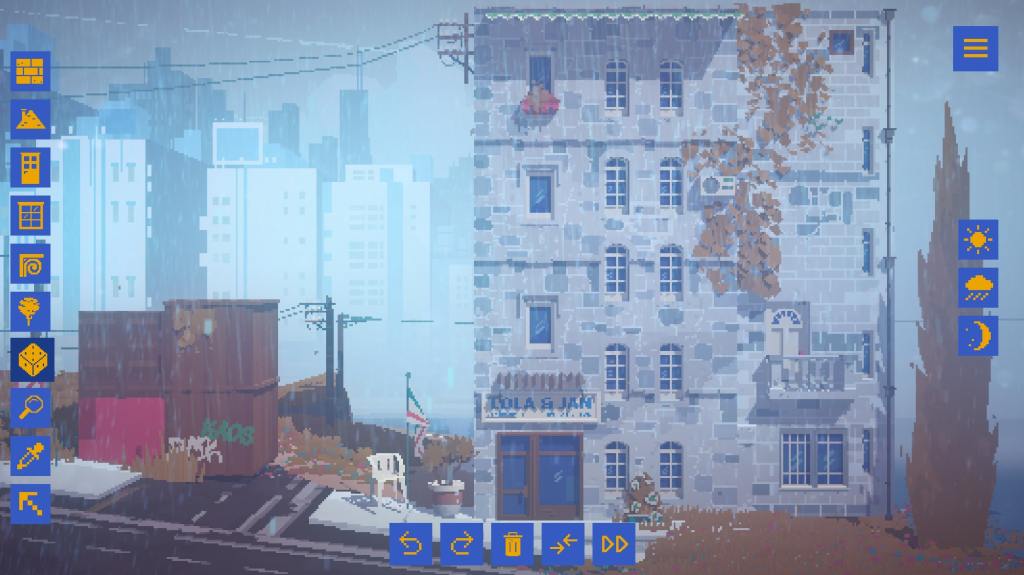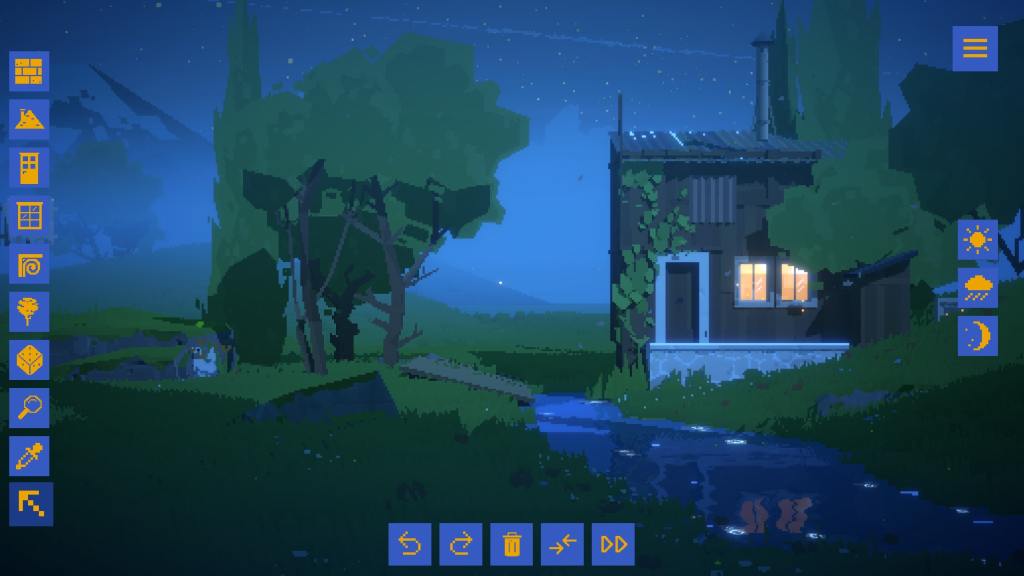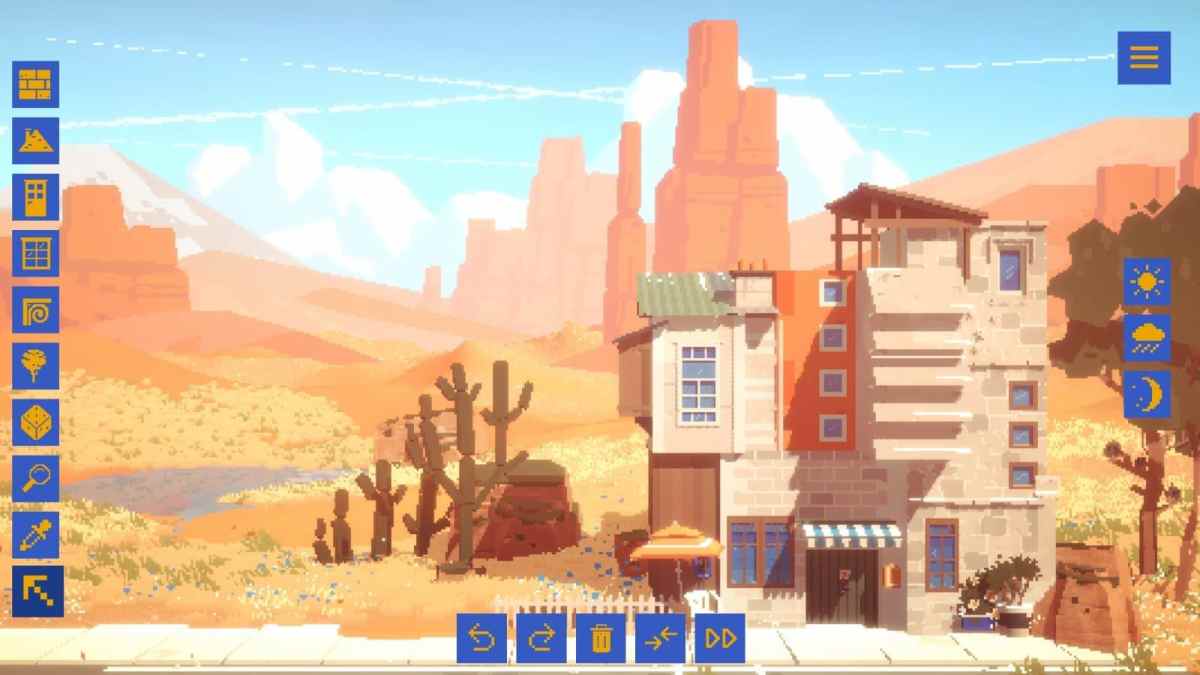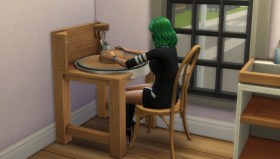You know that Simpsons episode where Homer designs a car? When I first began playing SUMMERHOUSE, my first ‘summer houses’ looked like Homer’s car. Why would anyone give me, someone who lives in a house but otherwise knows nothing about architecture, the resources to create something so ugly?
SUMMERHOUSE is a sandbox toy, like Townscaper, in which you place house-related pieces onto one of four landscapes: frosty mountain, lush meadow, urban sprawl or desert. There’s no game, just creative exploration.
Many of the pieces look like they have been plucked straight from a Sims trailer park; off-white washing on a line, plastic chairs, ventilation units. Placement is entirely freeform, so you can stack rusty pipes, or dirty windows to express yourself through abstract sculpture, if you really want to.
After some initial ugliness, however, I desperately wanted to do better. I limited myself to smaller palettes of content and, although my creations never became beautiful, they became interesting – which was a surprising and even better outcome.

The mood here is very chill, which is supported by an easy, breezy UI. If you want agency over your decision-making, simply right click whichever gallery you wish to open – wall, roof, door, window, decoration or nature blocks. I came to appreciate the ‘random blocks’ feature, where you can right click to randomly select from the entire collection until something inspiring appears.
My initial impression was that there isn’t a lot of choice within galleries, perhaps because I have all of the Sims 4 expansions and stuff packs, and that kind of immense scope for building has become my default expectation.
Read: The Sims 4 is getting new party and style kits
But consider Townscaper, in which initial decision-making is explicitly limited. You can only control colour and where to place something (seemingly a random block) on x, y and z axes. You can pursue greater agency in Townscaper as you learn how the grid works, but the game tells you upfront that its intention is to be minimal.
I needed to focus on making fewer decisions, not more, and then a kind of holiday vibe started to emerge. I created little villages, wherein each building had its own personality while conforming to a loosely overarching cultural theme. Stone walls, but with occasional, wooden extensions. Maybe the family who takes pride in their garden lives next to someone with an abandoned shed.

This obviously also explains the game’s name, SUMMERHOUSE – a quirky location you explore on a lazy road trip, or maybe an Airbnb in which you can rest for a day or two. It’s imperfect, but novel and cosy.
I built for a while, googled different kinds of houses and villages for inspiration, turned on ‘night’ or ‘rain’, to make my creation feel more alive, then talked to my husband about whether we could find some money for an overseas trip in the next few years. My engagement was both intensely focused, and intermittently meta.
I imagine the player who would most enjoy SUMMERHOUSE is someone with strong… destination literacy? Is that a thing? Someone like my friend, who is a travel agent. She’s always posting photos of interesting and thematic houses from outback Australia or the Falkland Islands, or wherever.
I’m quite embarrassed by the screenshots I provided for this review, in case you think my humble creations are still ugly or not very creative. Trust me, they’re a vast improvement on what I made to start with.
When I look at them, however, I see the pieces I chose to use and the many more I chose not to use, and feel an inexplicably rare peace; that everything is as it should be. SUMMERHOUSE is not for everyone. It was for me.
Five stars: ★★★★★
SUMMERHOUSE
Platforms: PC, macOS
Developer: Friedemann
Publisher: Future Friends Games
Release: 9 March, 2024





